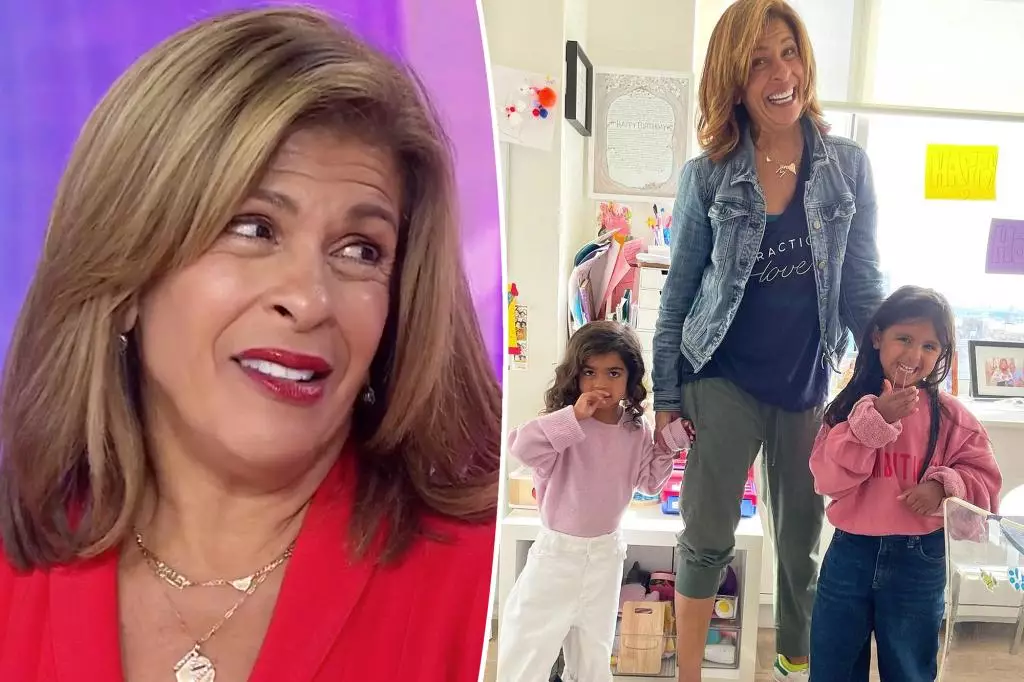Hoda Kotb, a prominent figure in the media landscape, has openly addressed an issue that resonates with many parents, particularly those who may be perceived as “older” mothers. During a segment of “Today with Hoda & Jenna,” Kotb defended her role as a mother, rather than allowing the common misconception that she is a grandmother to slide by uncorrected. This conversation is not merely about semantics; it delves into the deeper implications of how age perceptions can impact family dynamics and personal identity.
In her discussion with co-host Jenna Bush Hager, Kotb recounted an instance where she was mistaken for the grandmother of her daughters. This misunderstanding reflects a broader societal trend where older mothers are often pigeonholed into roles that do not correspond to their actual identities. While some may dismiss such remarks as trivial, Kotb’s response highlights the importance of asserting one’s identity, especially in a parenting context. By correcting these assumptions, she demonstrates a powerful parental lesson: that our reactions can significantly influence how our children perceive their relationships and identities.
Kotb’s advice for other mothers emphasizes the necessity of correcting misunderstandings calmly and confidently. Her belief is rooted in the notion that children learn from their parents’ responses. By proactively clarifying her role as their mother, Kotb exemplifies the role of assertiveness in parenting, fostering a sense of pride and identity within her daughters. She articulates that these moments offer an opportunity for teaching resilience—encouraging her girls to navigate societal perceptions, whether they are comforting or uncomfortable.
However, Kotb also acknowledges that constant corrections might become burdensome over time. Her balanced view suggests that while it’s important to address misconceptions, there’s also value in teaching children to navigate a world that often makes quick judgments. The conversation about age perceptions is not exclusively about defending oneself but also about educating younger generations about diversity in parenthood.
In a further exploration of this topic, Bush Hager contributed to the discussion by emphasizing that conversations surrounding age in parenting are fundamentally about self-acceptance and pride. The shared notion of feeling proud to embrace motherhood—regardless of age—transcends societal stereotypes. Both women agree that it’s not just about how others perceive them but also about how they feel about their roles. This dialogue highlights the shifting narrative around parenthood today, where older mothers are increasingly visible and vocal, challenging outdated stereotypes.
Moreover, Kotb’s experience as an adoptive mother showcases the joys and complexities of parenting at an older age. Having welcomed her first daughter at 52 and her second at 54, she embodies the belief that age should not dictate one’s capability to nurture and raise children. Her narrative further opens a conversation about the changing landscape of family structures, encouraging a richer understanding of parenthood that defies age boundaries.
Hoda Kotb’s journey as an older mother serves as a powerful reminder of the importance of embracing one’s identity and correcting misconceptions while fostering resilience in children. The dialogue around motherhood is evolving, and Kotb stands at the forefront, demonstrating that whether young or old, the core essence of parenting revolves around love, pride, and the lessons we impart to the next generation. As society continues to redefine what it means to be a parent, it becomes crucial to celebrate the diverse journeys that families take, reshaping perceptions along the way.

Leave a Reply